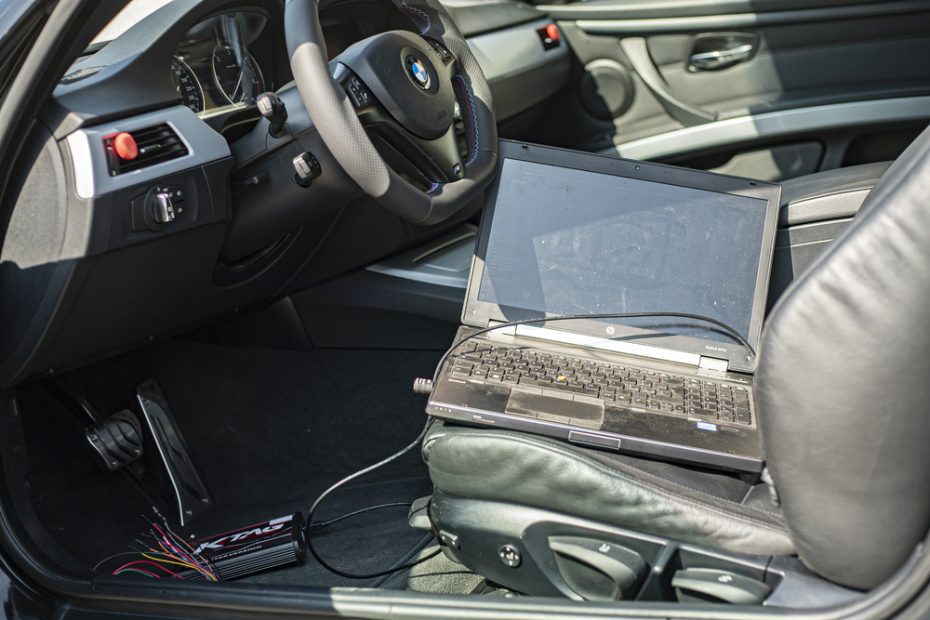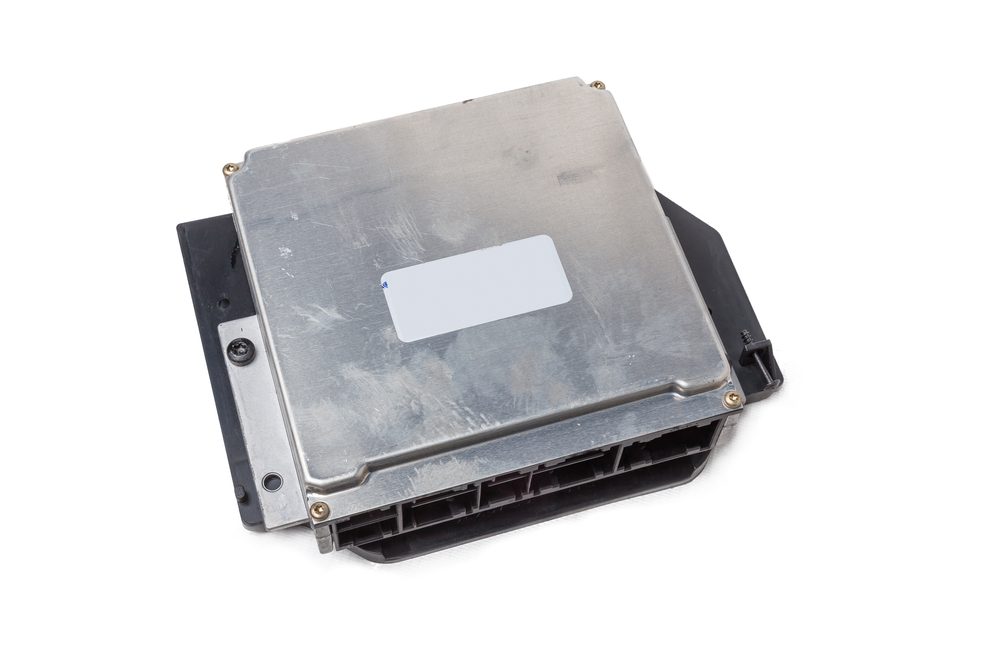How do I reset my ECU?
Resetting the Engine Control Unit (ECU) can be a useful troubleshooting step for various automotive issues. The ECU, also known as the Engine Control Module (ECM), is responsible for managing and controlling the engine’s operation.
Why would you need to reset the ECU?
There are several reasons why you might want to reset the ECU. One common reason is to clear any error codes that may have been stored in the ECU. These error codes can indicate a wide range of issues, from minor sensor malfunctions to more serious engine problems. By resetting the ECU, you can clear these codes and start with a clean slate.
Another reason to reset the ECU is when you make modifications or repairs to your vehicle. After making changes to the engine or installing aftermarket parts, resetting the ECU can help it adapt to the new components and settings. This ensures optimal performance and efficiency.
How to reset the ECU
The exact process for resetting the ECU may vary depending on the make and model of your vehicle. However, here are some general steps to follow:
- Disconnect the negative battery terminal: Start by disconnecting the negative terminal of your vehicle’s battery. This will cut off power to the ECU and allow it to reset.
- Wait for a few minutes: After disconnecting the battery, wait for at least 5 minutes to allow the residual charge in the system to dissipate. This ensures a complete reset of the ECU.
- Reconnect the battery: Once the waiting period is over, reconnect the negative battery terminal securely. Make sure the connection is tight to ensure proper functioning of the ECU.
- Start the engine: Start your vehicle and let it idle for a few minutes. This allows the ECU to relearn the engine parameters and adapt to the new settings.
It’s important to note that resetting the ECU will not fix underlying mechanical problems. If you’re experiencing persistent issues with your vehicle, it’s recommended to consult a professional mechanic for a thorough diagnosis and repair.
Benefits of resetting the ECU
Resetting the ECU can provide several benefits for your vehicle. Some of these include:
- Cleared error codes: Resetting the ECU clears any stored error codes, allowing you to start fresh. This can help diagnose recurring issues or address temporary glitches in the system.
- Adaptation to modifications: If you’ve made modifications or repairs to your vehicle, resetting the ECU ensures that it adapts to the new components and settings. This can optimize performance and efficiency.
- Improved drivability: In some cases, resetting the ECU can improve the overall drivability of your vehicle. It can restore factory default settings and recalibrate various engine parameters, resulting in smoother operation.
| Pros of ECU reset | Cons of ECU reset |
|---|---|
| Clears error codes | Does not fix underlying mechanical problems |
| Optimizes performance | May require relearning of driving habits |
| Restores factory default settings | Temporary fix for certain issues |
How do you reprogram a car ECU?
Reprogramming a car’s Engine Control Unit (ECU) is a complex process that requires technical expertise and specific tools. It involves altering the software programming of the ECU to optimize performance, improve fuel efficiency, or address issues with the vehicle. Here’s a step-by-step guide to reprogramming your car’s ECU:
1. Identify the ECU
First, locate the ECU in your vehicle. It is typically found under the dashboard or in the engine compartment. Consult your car’s manual or seek professional assistance if you’re unsure about its location.
2. Obtain the necessary equipment
To reprogram the ECU, you’ll need an OBD-II scan tool or a dedicated ECU programming tool. These tools connect to the car’s diagnostic port and allow you to access the ECU’s software.
3. Back up the existing software
Before making any changes, it’s important to create a backup of the current ECU software. This ensures that you can revert to the original settings if anything goes wrong during the reprogramming process.
4. Connect the programming tool
Connect the OBD-II scan tool or ECU programming tool to the car’s diagnostic port. Follow the manufacturer’s instructions for proper connection.
5. Read the existing software
Using the programming tool, read the existing software from the ECU. This will provide you with a copy of the original programming that you can modify.
6. Make the necessary changes
Identify the parameters you want to modify in the ECU software. This can include adjusting fuel maps, ignition timing, or other performance-related settings. Take caution while making changes as improper settings can harm the engine or void the warranty.
7. Write the modified software
After making the desired changes, write the modified software back to the ECU using the programming tool. This overwrites the original programming with the new settings.
8. Test the vehicle
Once the reprogramming is complete, start the engine and test the vehicle’s performance. Monitor for any issues or abnormalities and make further adjustments if needed.
9. Clear error codes
If any error codes are triggered during the reprogramming process, use the programming tool to clear them. This ensures that the ECU is functioning properly and no false alarms are displayed.
10. Professional assistance
If you’re unsure about reprogramming the ECU yourself, it’s recommended to seek professional assistance. Experienced technicians have the expertise and knowledge to reprogram the ECU safely and accurately.
Remember, reprogramming a car’s ECU should only be done by individuals with the necessary technical skills and understanding. Incorrect modifications can lead to engine damage or other serious problems. If in doubt, consult an expert for guidance.
Reprogramming a car’s ECU involves altering the software programming to optimize performance or address issues. It should be done by individuals with the necessary technical skills and understanding.
Does a new ECU need to be programmed?
When it comes to resetting your ECU, a common question that arises is whether a new ECU needs to be programmed. The answer to this question depends on the specific situation and the type of vehicle you have.
Factory-Installed ECUs
If you are replacing the ECU in a vehicle that comes with a factory-installed ECU, it is highly likely that the new ECU will need to be programmed. This is because factory-installed ECUs are typically programmed specifically for the vehicle’s make, model, and options. Without proper programming, the new ECU may not function correctly or may not communicate with other components in the vehicle.
Aftermarket ECUs
If you are installing an aftermarket ECU, the need for programming may vary. Some aftermarket ECUs come pre-programmed with generic settings that can work with a wide range of vehicles. In such cases, programming may not be necessary. However, for optimal performance and customization, programming the aftermarket ECU to match your specific vehicle is highly recommended.
Programming Process
When an ECU needs to be programmed, it is usually done by a professional technician or at a specialized automotive workshop. The programming process involves connecting the ECU to a computer system and using specialized software to input the necessary data, such as vehicle identification details, fuel maps, ignition timing, and other performance parameters.
It is important to note that attempting to program an ECU without the necessary knowledge and expertise can result in serious damage to your vehicle’s electrical system. Therefore, it is always best to seek professional assistance when it comes to programming a new ECU.
Quote: “Proper programming of a new ECU is crucial to ensure optimal performance and compatibility with your vehicle.”
Conclusion
In summary, whether a new ECU needs to be programmed depends on the type of ECU (factory-installed or aftermarket) and the specific requirements of your vehicle. Factory-installed ECUs generally require programming, while some aftermarket ECUs may come pre-programmed. However, for the best results and to avoid potential issues, it is advisable to have a professional technician program the new ECU to match your vehicle’s specifications. Remember, safety and performance should always be the top priorities when dealing with your vehicle’s electronic systems.
Can I Program my Own ECU?
Programming your own Engine Control Unit (ECU) can be a complex task requiring technical knowledge and specialized equipment. While it is possible to program your own ECU, it is generally not recommended for the average car owner without proper training and experience.
Why would you want to program your own ECU?
There are several reasons why someone might want to program their own ECU:
- Performance enhancements: By reprogramming the ECU, you can optimize your car’s performance, such as increasing horsepower or improving fuel efficiency.
- Tuning modifications: If you have made modifications to your car, such as adding a turbocharger or an aftermarket exhaust system, reprogramming the ECU can help ensure that these modifications work together seamlessly.
- Diagnostic purposes: Programming your own ECU can give you access to advanced diagnostics and troubleshooting capabilities, helping you identify and fix potential issues.
The challenges of programming your own ECU
While the idea of programming your own ECU may sound appealing, there are several challenges and considerations to keep in mind:
- Technical expertise: ECU programming requires a solid understanding of automotive electronics, software coding, and diagnostic tools.
- Specialized equipment: To program an ECU, you’ll need specialized hardware and software, which can be expensive to acquire.
- Risk of damage: Incorrect ECU programming can potentially damage your vehicle or lead to poor performance if not done correctly.
Professional help and alternatives
If you don’t have the necessary expertise or equipment, it is generally recommended to seek professional help when it comes to ECU programming. Automotive workshops or specialists can provide expert assistance and ensure that the programming is done accurately and safely.
Quote: “Programming your own ECU can be a challenging task and is not recommended unless you have the necessary skills and knowledge.” – Automotive Specialist
Alternatively, there are also companies that offer pre-programmed ECUs for specific vehicle models, which can be a simpler and more cost-effective solution for those looking to enhance performance or make tuning modifications.
While it is possible to program your own ECU, it is generally a complex task that requires technical expertise, specialized equipment, and a good understanding of automotive electronics. If you’re not confident in your abilities, it’s best to seek professional help or explore alternatives such as pre-programmed ECUs.
In summary, whether a new ECU needs to be programmed depends on the type of ECU (factory-installed or aftermarket) and the specific requirements of your vehicle. Factory-installed ECUs generally require programming, while some aftermarket ECUs may come pre-programmed. However, for the best results and to avoid potential issues, it is advisable to have a professional technician program the new ECU to match your vehicle’s specifications. Remember, safety and performance should always be the top priorities when dealing with your vehicle’s electronic systems.
Conclusion
Resetting the ECU can be a useful step in troubleshooting automotive issues and optimizing performance. By following the proper procedure, you can clear error codes, adapt to modifications, and improve drivability. However, it’s important to remember that an ECU reset is not a cure-all solution and won’t fix underlying mechanical problems. If you’re unsure or experiencing persistent issues with your vehicle, it’s best to consult a professional mechanic.



